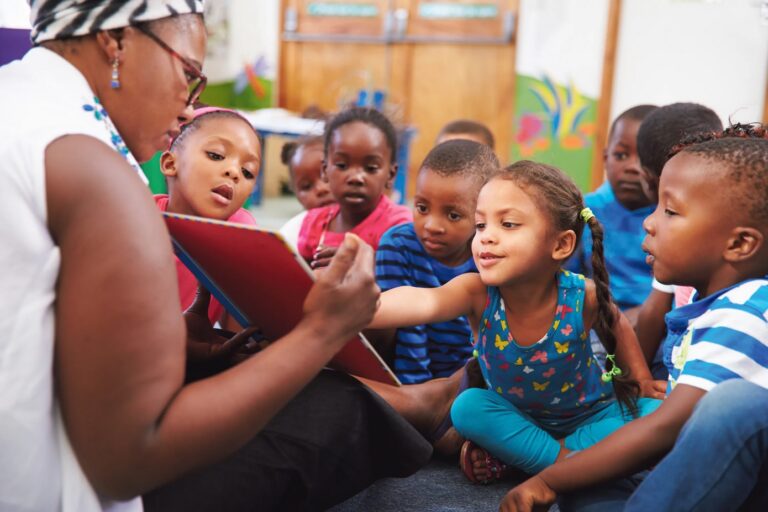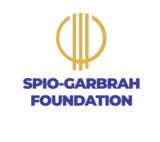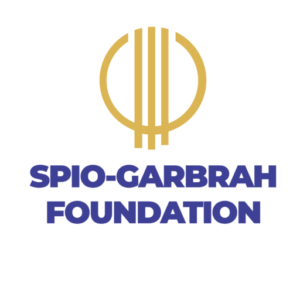What We Do
Representing 100+ Years Of Excellence In Education
Early Childhood Education

In spite of Ghana’s improvements in school access, a number of children lack the necessary literacy and numeracy skills. In addition, a lot of children don’t get the holistic development they need for their physical, social, emotional, and intellectual needs, which is necessary to build a broad and solid foundation for their wellbeing.
The period from birth to eight years old is one of remarkable brain development for children and represents a crucial window of opportunity for education. This time of remarkable growth requires a specialized educational approach to ensure that children learn key skills and foundational concepts they’ll need for the rest of their lives.
The Spio-Garbrah Foundation (SGF) believes early childhood education is more than just preparing children for primary school. It can be the foundation for developing the emotional, social, and cognitive skills needed to become lifelong learners. Our early childhood education program is concentrated on the crucial developmental milestones, skills, and concepts that children should attain during this period of their lives, from social-emotional skills to the beginnings of numeracy, literacy, and critical thinking. Furthermore, SGF supports high-quality early childhood education as one of its sustainable development goals. To the SGF this foundational aspect of education directly contributes to better lives for children, which has a positive ripple effect on the nation’s prosperity, social inclusion, and economic development.
The goals of an early childhood education program can be split into four main development themes:
1. Intellectual and Academic Development
While an early childhood education program should have carefully researched goals for literacy and numeracy, the foundations of academic success are only one part of a child’s intellectual development during the early years. It is essential that a child sees themselves as a capable learner, who can grapple with new topics that may seem tricky at first, and resist giving up when a topic or task becomes difficult. Here, a child’s intellectual development extends far beyond the classroom. Children who get support from the SGF’s early childhood education program learn to view every situation as a learning opportunity.
The SGF early childhood education program promotes a strong intellectual curiosity and leads Ghanaian children to a life of observing, wondering, questioning, and discovery. This often includes play-based learning or outdoor learning, a focus on self-directed learning, and a responsive curriculum. These aspects of the SGF’s early childhood education program allow the classroom environment to engage with and incorporate a child’s interests into the learning journey.
2. Social Development
The SGF’s early childhood education program works to impart the attitudes and values of equality, peace, and cooperation and enhance a child’s awareness of themselves as persons who live in relationship to others. This is known as “the cradle of social cohesion.” In addition to the above and delivering what many parents consider foundational skills like sharing, using respectful language like “please” and “thank you,” and contributing to shared efforts like cleaning up and following directions, our early childhood education programs develop children to be better future leaders.
3. Emotional Development
In the early years, children develop essential emotional skills like self-confidence, self-regulation of their emotions, self-expression, self-respect, and positive self-belief. These skills are essential for later activities like problem-solving and healthy risk-taking. To help Ghanaian children in this direction, the SGF supports programs and activities that promote small class sizes and lots of teacher interaction time to help children learn these skills in an environment in which they are known, cared for, and encouraged to practice them. To the SGF, by establishing a strong emotional foundation where children understand their value as friends, learners, and individuals, and where they have confidence in themselves and their ability to express their ideas, emotions, and needs, they are prepared for increasingly complex social-emotional and academic challenges.
4. Physical Development
An early childhood education program overlaps with a child’s development of gross and fine motor skills, physical coordination (hand-eye coordination, biking, running, etc.), and their understanding of healthy skills like hand-washing, regular exercise, and balanced eating.
The SGF’s early childhood education program focuses on developing these skills through free and planned play, engaging activities like sensory tables, building, painting, playing instruments, etc., and coordinated games where children practice running, pulling, pushing, hopping, and working together while having fun! These activities build on each other, from improving fine motor control to support their writing development, to children gaining more independence in activities like putting on their dresses and shoes, moving from velcro straps to laced shoes, and packing their lunch bags and backpacks.



